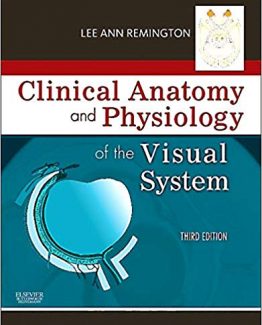Charney & Nestler’s Neurobiology of Mental Illness 5th Edition by Dennis S. Charney, ISBN-13: 978-0190681425
[PDF eBook eTextbook]
- Publisher: Oxford University Press; 5th edition (January 17, 2018)
- Language: English
- 1024 pages
- ISBN-10: 019068142X
- ISBN-13: 978-0190681425
In the years following publication of the DSM-5®, the field of psychiatry has seen vigorous debate between the DSM’s more traditional, diagnosis-oriented approach and the NIMH’s more biological, dimension-based RDoC (research domain criteria) approach. Charney & Nestler’s Neurobiology of Mental Illness is an authoritative foundation for translating information from the laboratory to clinical treatment, and its fifth edition extends beyond this reference function to acknowledge and examine the controversies, different camps, and thoughts on the future of psychiatric diagnosis.
In this wider context, this book provides information from numerous levels of analysis, including molecular biology and genetics, cellular physiology, neuroanatomy, neuropharmacology, epidemiology, and behavior. Sections and chapters are edited and authored by experts at the top of their fields. No other book distills the basic science and underpinnings of mental disorders-and highlights practical clinical significance-to the scope and breadth of this classic text.
In this edition, Section 1, which reviews the methods used to examine the biological basis of mental illness in animal and cell models and in humans, has been expanded to reflect critically important technical advances in complex genetics (including powerful sequencing technologies and related bioinformatics), epigenetics, stem cell biology, optogenetics, neural circuit functioning, cognitive neuroscience, and brain imaging. This range of established and emerging methodologies offer groundbreaking advances in our ability to study the brain as well as unique opportunities for the translation of preclinical and clinical research into badly needed breakthroughs in our therapeutic toolkit.
Sections 2 through 7 cover the neurobiology and genetics of major psychiatric disorders: psychoses (including bipolar disorder), mood disorders, anxiety disorders, substance use disorders, dementias, and disorders of childhood onset. Also covered within these sections is a summary of current therapeutic approaches for these illnesses as well as the ways in which research advances are now guiding the search for new treatments. Each of these parts has been augmented in several different areas as a reflection of research progress.
The last section, Section 8, reconfigured in this new edition, now focuses on diagnostic schemes for mental illness. This includes an overview of the unique challenges that remain in diagnosing these disorders given our still limited knowledge of disease etiology and pathophysiology. The section then provides reviews of DSM-5®, which forms the basis of psychiatric diagnosis in the United States for all clinical work, and of RDoC, which provides an alternative perspective on diagnosis in heavy use in the research community. Also included are chapters on future efforts toward precision and computational psychiatry, which promise to someday align diagnosis with underlying biological abnormalities.
Table of Contents:
Title Page
Copyright Page
Contents
Contributors
Section 1 Emerging and Established Technologies
1. Genetic Methodologies and Applications
2. Network Methods for Elucidating the Complexity of Common Human Diseases
3. The Human Brain and Its Epigenomes
4. Methods for In Vivo Gene Manipulation
5. Application of Stem Cells to Understanding Psychiatric Disorders
6. Optogenetics and Related Technologies for Psychiatric Disease Research: Current Status and Challenges
7. In Vivo Circuit Analysis
8. Magnetic Resonance Methodologies
9. PET Brain Imaging Methodologies
10. Neuromodulation and Psychiatric Disorders
11. The Neurobiology of Sleep
SECTION 2 PSYCHOTIC DISORDERS
12. Diagnosis and Epidemiology of Psychotic Disorders
13. Genetics of Schizophrenia and Bipolar Disorder
14. Neuroimaging of Psychotic Disorders
15. Animal and Cellular Models of Psychotic Disorders
16. Cognitive and Motivational Neuroscience of Psychotic Disorders: Animal and Human Studies
17. Synaptic Mechanisms of Psychotic Disorders: Animal and Human Studies
18. Cellular Mechanisms of Psychotic Disorders: Human Studies
19. Neurodevelopmental Mechanisms for Psychotic Disorders: Animal and Human Studies
20. The Neurobiology and Treatment of Bipolar Disorder
21. Novel Approaches for Treating Psychotic Disorders
22. Current Treatments for Psychotic Disorders
SECTION 3 DEPRESSION
23. Diagnosis and Epidemiology of Depression
24. Genetics of Depression
25. Neuroimaging of Depression
26. Animal Models of Mood Disorders
27. Neurotrophic Mechanisms of Depression: Animal and Human Studies
28. Immune Mechanisms of Depression
29. Neuroendocrine Mechanisms of Depression: Clinical and Preclinical Evidence
30. New Approaches for Treating Depression
31. Current Treatments for Depression
SECTION 4 ANXIETY DISORDERS
32. Diagnosis and Epidemiology of Anxiety, Obsessive-Compulsive, and Trauma and Stressor-Related Disorders
33. Genetics of Anxiety Disorders
34. Functional Neurocircuitry and Neuroimaging Studies of Anxiety Disorders
35. Animal Models and Assays Probing Anxiety Related Behaviors and Neural Circuits
36. What Are Fear and Anxiety? Listening to the Brain
37. Synaptic and Circuit Mechanisms of Anxiety Disorders: Animal and Human Studies
38. The Neurobiology of Resilience
39. Novel Approaches for Treating Anxiety Disorders
40. Current and Experimental Treatments for Anxiety Disorders
SECTION 5 SUBSTANCE USE DISORDERS
41. Epidemiology of Substance Use Disorders
42. The Genetic Basis of Addictive Disorders
43. Animal Models of Addiction
44. Reward Circuitry and Drug Addiction
45. Molecular Neuroimaging in Addictive Disorders
46. Cellular and Molecular Mechanisms of Addiction
47. Brain Development and the Risk for Substance Abuse
48. Novel Approaches for Treating Addiction
49. Current Approved Pharmacotherapies for Substance Use Disorders
SECTION 6 DEMENTIA
50. Diagnosis and Epidemiology of Dementia
51. Genetics of Dementia
52. Neuroimaging and Cerebrospinal Fluid Biomarkers of Alzheimer’s Disease
53. Animal Models of Alzheimer’s Disease
54. Cellular Mechanisms of Dementia: Animal and Human Studies
55. Neurobiology of Lewy Body Dementias: Animal and Human Studies
56. Neurobiology of FTD: Animal and Human Studies
57. Current Treatments for Alzheimer’s Disease
SECTION 7 PEDIATRIC PSYCHIATRIC DISORDERS
58. Diagnosis and Epidemiology of Pediatric Psychiatric Disorders
59. Genetics of Pediatric Psychiatric Disorders
60. Neuroimaging in Pediatric Psychiatric Disorders
61. Animal and Cellular Models of Pediatric Psychiatric Disorders
62. Neurodevelopmental Mechanisms of Pediatric Psychiatric Disorders: Animal and Human Studies
63. Neurobiology of Autism Spectrum Disorder and Intellectual Disability: Animal and Human Studies
64. Neurobiology of Attention Deficit Hyperactivity Disorder: Animal and Human Studies
65. The Neurobiology of Tic Disorders and Obsessive-Compulsive Disorder: Animal and Human Studies
66. Neurobiology of Eating Disorders: Animal and Human Studies
67. Novel Approaches for Treating Pediatric Psychiatric Disorders
68. Current Treatments for Pediatric Psychiatric Disorders
SECTION 8 FUTURE OF PSYCHIATRIC DIAGNOSIS: TOWARD PRECISION PSYCHIATRY
69. DSM-5 Overview and Goals
70. The Present and Future of Psychiatric Diagnosis
71. The NIMH Research Domain Criteria Project: Toward Precision Medicine in Psychiatry
72. Computational Psychiatry and the Bayesian Brain
Index
Dennis S. Charney, MD
Anne and Joel Ehrenkranz, Dean,
Icahn School of Medicine at Mount Sinai
President for Academic Affairs
Mount Sinai Health System
Professor, Departments of Psychiatry, Neuroscience, and
Pharmacological Sciences
New York, NY
Joseph D. Buxbaum, PhD
G. Harold and Leila Y. Mathers Professor, Departments of Psychiatry, Neuroscience, and Genetics and Genomic Sciences
Deputy chair, department of psychiatry
Director, Seaver Autism Center for research and treatment
Icahn School of Medicine at Mount Sinai
New York, NY
Pamela Sklar, MD, PhD
Mount Sinai professor of Psychiatric genomics
Chair, department of Genetics and Genomic Sciences Professor, Departments of Genetics and Genomic Sciences, Psychiatry, Neuroscience, and
Director, Center for Psychiatric Genomics
Icahn School of Medicine at Mount Sinai
New York, NY
Eric J. Nestler, MD, PhD
Nash Family Professor
Departments of Neuroscience and Psychiatry
Director, The Friedman Brain Institute
Dean for academic and scientific affairs
Icahn School of Medicine at Mount Sinai
New York, NY
What makes us different?
• Instant Download
• Always Competitive Pricing
• 100% Privacy
• FREE Sample Available
• 24-7 LIVE Customer Support






Reviews
There are no reviews yet.